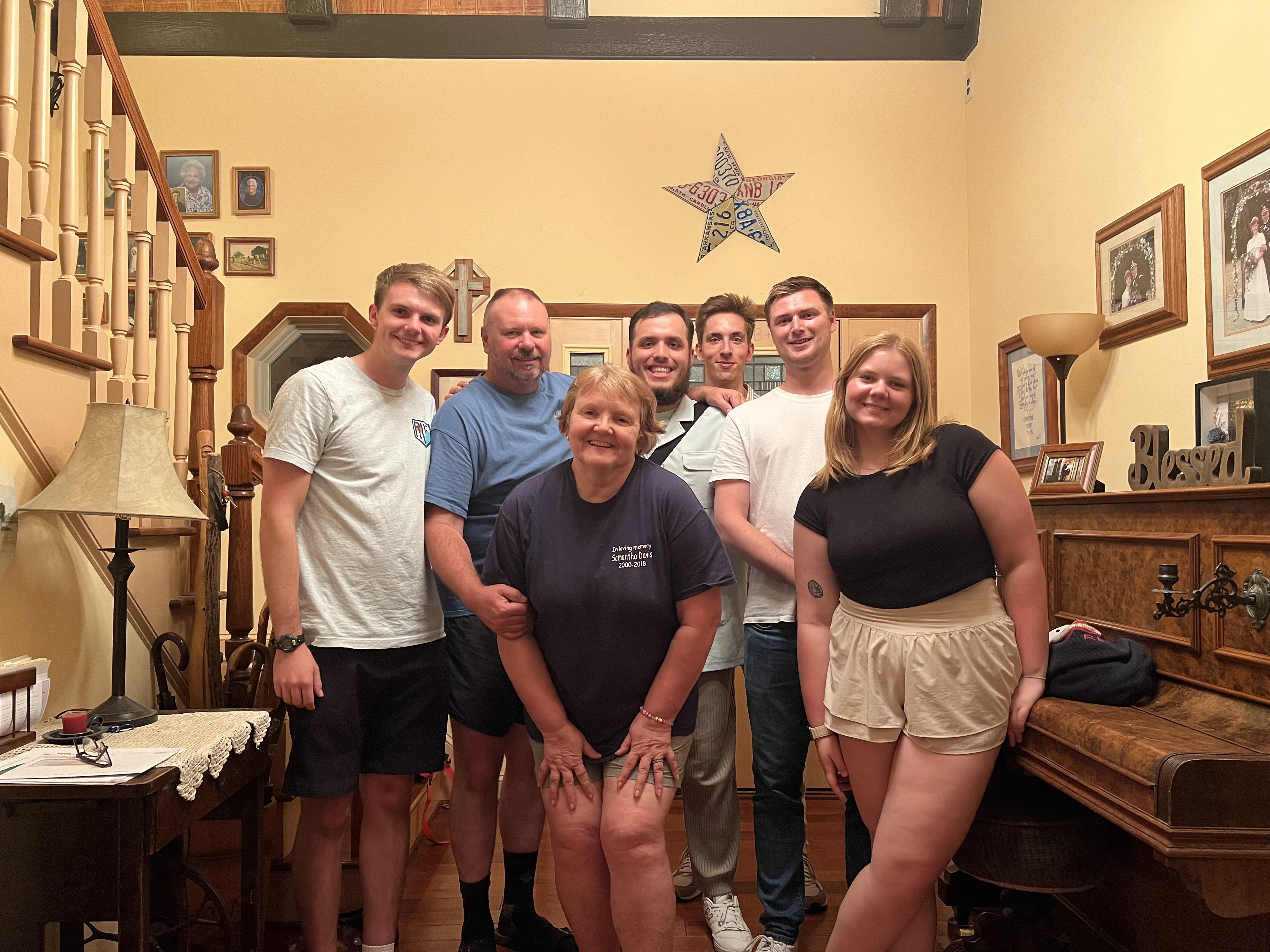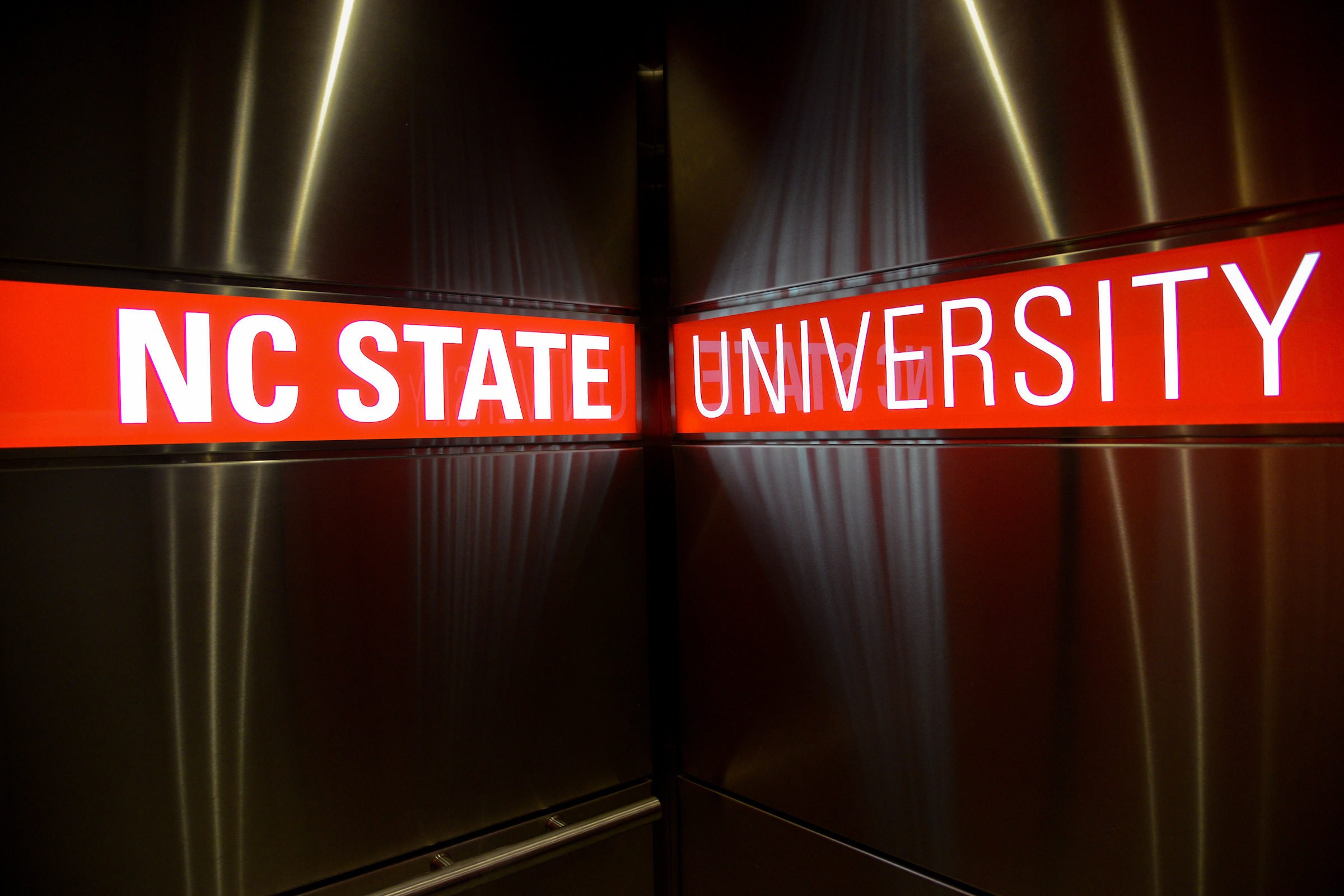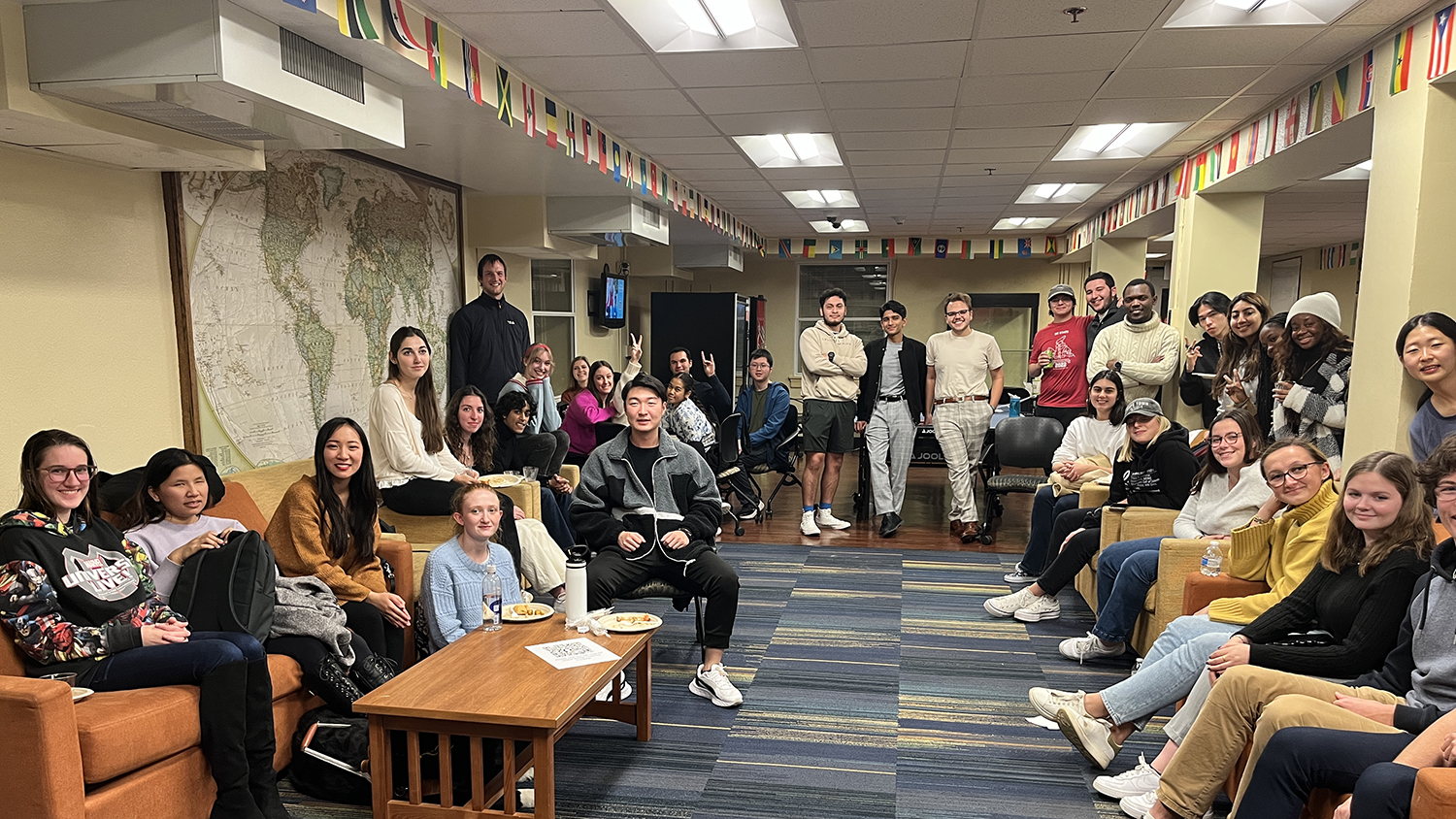Navigating Shared Paths
German and NC State Students Connect Through Sustainability and Culture

Lukas Smith grew up speaking German at home with his mother, who is from Frankfurt originally. He’s a civil engineering major who is minoring in German as well as Spanish, so he was excited about the opportunity to help with a visiting group of university students from Germany at the beginning of the semester.
“It was a great opportunity because I don’t really get any chances to speak with German people my age,” Smith said. “It was cool that I got to learn some slang and even how they use some English words in a different way. For example, they use the word ‘safe’ to mean ‘it’s for sure.’ So, you would ask someone if we’re still on for tomorrow and they would say, ‘yeah, safe’”
Emi Boldor is another civil engineering major who hosted some of the Fulbright German students. She wanted the students to feel welcome during their time here.
“I’ve done a study abroad program, and I know it’s hard to meet new people, especially if you go somewhere with a group,” she said. “I’m always willing to take people around campus and around class.”
The German-American Fulbright Commission selected 30 students from universities of applied sciences across Germany to participate in a four-week program on “A Culture of Sustainability” that included in-class instructional activities with site visits, professional meetings, cultural exchange opportunities, and local excursions. Since the cohort was visiting campus during Wolfpack Welcome Week, the Global Training Initiative recruited NC State students from the German department, Global Village and Park Scholars to act as hosts. Smith and Boldor volunteered to take some of the visiting German students to class with them during the first week of the fall semester.
Academic Exchanges
Nick Bennewitz was one of the German Fulbright students who is studying urban planning and wanted to explore and compare different cities. This summer institute was his first time in the U.S., so he got to see for himself what he had only heard about American cities.
“You definitely feel the way the cities are designed are way more car-oriented in the U.S.,” he said. “In my hometown, you will see people biking all the time, walking to get their groceries, walking to university.”
Bennewitz and the other Fulbright German students who joined the STS 320:Cycling Cities course to discuss this particular topic were surprised by the major differences where roughly two-thirds of the Americans in the class owned a car compared to two-thirds of the German students who ride their bikes on a daily basis.
The conversations about the differences and similarities between both countries and cultures when it comes to topics related to sustainability was a highlight for many of the students.
“This program will help me work better in interdisciplinary groups because we can talk about so many different topics from many points of view,” said Ferdinand Brandel, who is studying renewable energy engineering. “It was pretty interesting and I got new views about topics that are not in my study program.”
Cultural Exchanges
In addition to exploring academic topics together, the NC State and Fulbright German students also appreciated the opportunities for all kinds of cultural exchanges about their daily lives. Boldor recalled taking a group to the local grocery store and seeing how surprised the German students were about how expensive everything seemed to be and having to purchase a whole pack of drinks or snacks instead of opening up the package to just buy one bottle. She explained that it’s fine for American students to buy in bulk since they had cars to transport the groceries. The drive back from the store also gave her the opportunity to expand her musical horizons.
“On the way back home, I let them DJ and they started playing German rap music that was so good. I absolutely loved it,” she said. “I started an entirely new playlist called ‘driving music’ because of it.”
Smith also enjoyed the interactions with the small group of German students he drove to his home to meet his family, including their surprise at all the billboard advertisements on our highways. He said the major cultural differences like the lack of public transportation in smaller U.S. cities isn’t as much of a surprise since it’s well-known and expected. But for him, it was fascinating to learn about the little surprising differences.

“We live different lives in that we’re doing the same things just in slightly different ways,” he added. “The students I spoke with said the biggest culture shock for them was that we don’t open our windows here. In Germany, you open your windows for 15 minutes each day to let the air circulate, but they couldn’t believe that we don’t do that at all here and our windows only go up and down instead of tilting out.”
The German students were also shocked by the amount of single-use plastic present throughout their experience in the U.S. From plastic utensils at their daily breakfast at the hotel to take away drinks with plastic cups, lids and straws to individually-wrapped stickers awarded to program participants, the students expressed their disappointment by the amount of waste they were generating. Still, their presence on campus had an impact. Phillip Irwin, the director of a local community organization called the Little German Band and Dancers used the program’s sustainability topic as motivation for his group to acquire some real dinner plates in preparation for their annual potluck.
“For far too long, we’ve been indulging in the convenience of disposables,” he said.
American Dream Come True
For most of the German Fulbright students, this exchange program was their first visit to the United States. Many of them, like Derya Gögü, spent their childhoods watching American movies or TV series, so it was interesting to finally see things like police cars in person where they were previously only movie props. Gögü is studying in the northwest part of Germany and also appreciated the weather in North Carolina.
“In Germany, it’s really rainy and our summer is really short, so I really like having the sun shining almost every day. It brightens my mood,” she said.
Spending about a month in Raleigh also made her appreciate what she has back home and provided new ideas about how to work across cultures.
“I’m grateful for the public transportation in Germany, and I won’t complain about it so much anymore,” she added. “I also have some new insights about ways to communicate with different people or different groups about issues like food waste and sustainability so they are listening to what we have to say.”
NC State will host another Fulbright German Summer Institute next August, and Smith and Boldor encourage students to get involved whether or not you speak the language.
“Most of them speak English very well, and it’s a great opportunity to learn about other cultures,” Smith added. “Instead of learning about language or culture in class, you can do it in real life with a person you can converse with and share stories with them.”
- Categories:


